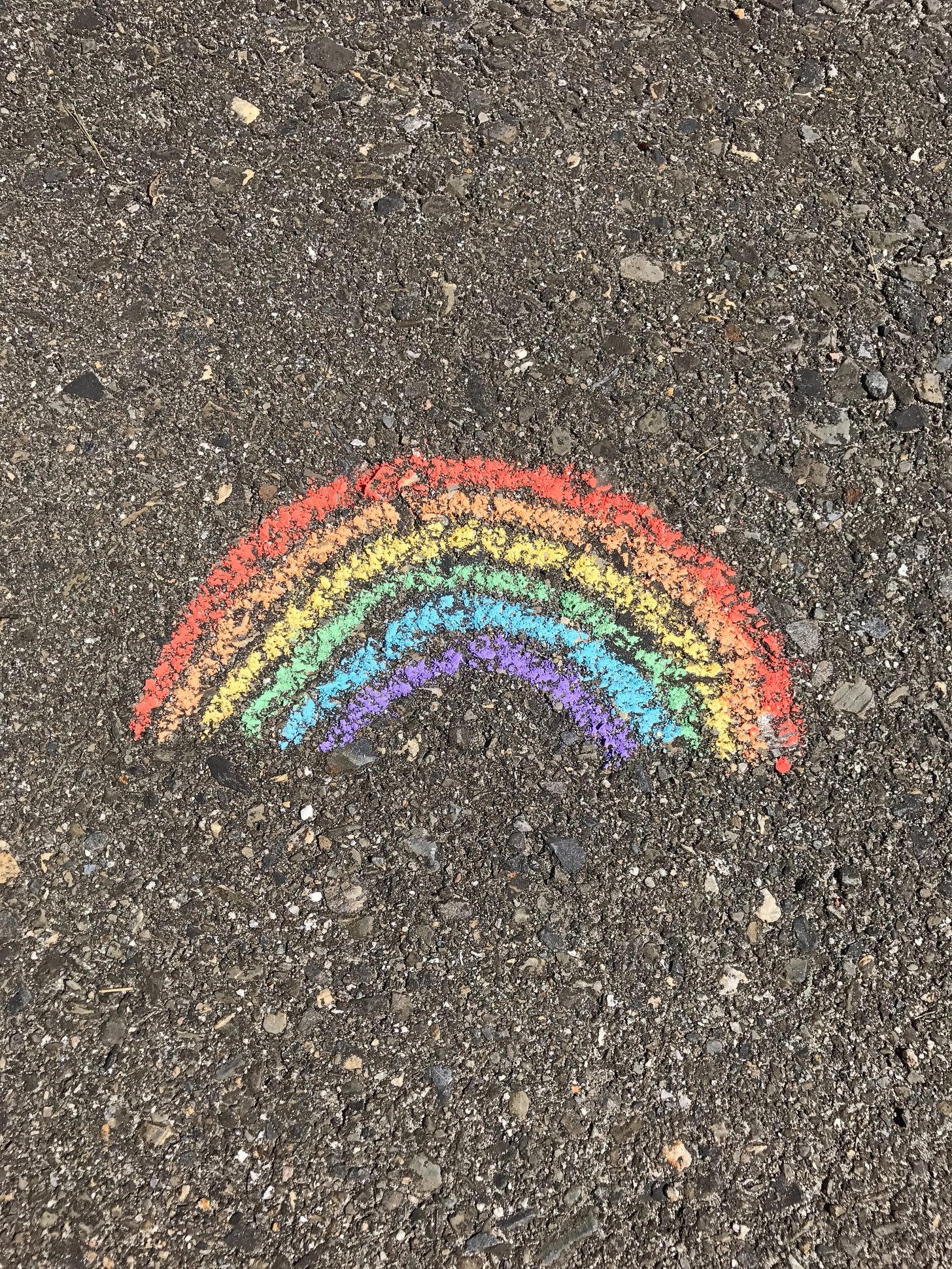I Need to Talk about Gay Pride and Jesus
Why a straight Christian like me fervently marches with rainbows, in the month of June and beyond.
Hey friends! This post is the first in a series called Psalms of Unknowing, where I explore overtly spiritual & religious subjects. If that’s not your thing, no worries! You can unsubscribe to this series and still receive my very occasional author newsletter, The Slow Take.
First, a little background: As a kid, I was raised conservative Baptist. The form of Christianity I learned about smelled like stale carpet. It looked like women in calf-length skirts standing supportively beside suited men. It looked like balding pastors at a pulpit—always male—telling us to love a domineering God and his only son and America and the heterosexual nuclear family. It looked like women staying at home in aprons and smiling politely, or frowning and being told that their chronic dissatisfaction was a sign of sin. It looked like church basement luncheons of jello molds, alcohol-free punch, pat smiles, and complaints about (Satan’s) pop music and (Satan’s) federal taxes. All of this was blessed by the outspread arms of Jesus, who lorded over us with beige robes and shampoo-shiny brown hair. This Jesus liked convention, tradition, patriarchy, and Reagan.
I left the church when I was eight. I didn’t return until my late twenties. It’s hard to explain what brought me back, but I’ll say that I always resonated with that Ghandi quote: I like your Christ. I do not like your Christians. Your Christians are nothing like your Christ. For years, I suspected that Jesus had more to say than what I’d learned in my Baptist youth.
So now I attend an Episcopal church. I read the Bible. And here’s the truth: Jesus constantly surprises me.
For instance: He’s always breaking the rules. He’s far from a traditionalist. The old legal books tell him he absolutely cannot heal on the sabbath. Jesus heals on the sabbath.
The old legal books also tell him you have to wash your hands before eating. Jesus lets his disciples eat with dirty hands. The rule-enforcing religious leaders are aghast. What is he doing?! Letting his dirty students eat unwashed!?
Jesus replies, Don’t sweat these old, dead laws. Don't fuss about external actions. You’re trying to codify your way to holiness. What good is your holiness if a person suffers from it? What good is holiness if it is just your way of creating outcasts? Instead, look inside a person’s heart. It’s the spirit of a person that matters.
Which is why I’m always baffled when so-called Christians write a quote from Leviticus on a banner and show up to protest PRIDE events. Or when they throw this same Leviticus quote at queer folks like they're throwing axes.
Biblical scholars will tell you, Leviticus is the book of rules. Don’t have sex with a woman on her period. Don’t wear fabrics with mixed textiles (farewell 50 cotton/50 poly!) Don’t get a tattoo, etc. Leviticus offers codes of “holiness.”
But again and again, Jesus dismisses these codes. The old laws, he says, are not where we find the kingdom of God. He gives people new laws—just two of them. And they are these:
Love God. Love your neighbor. The new laws are focused on love.
Love. Something we know from the heart. Something that pours selflessly from the inside out.
This is why a straight Christian like me fervently marches with rainbows throughout the month of June, and beyond. Anyone who’s had the privilege of witnessing—or experiencing—gay love, or trans love, or nonbinary love, knows it’s just as blessed and messy and beautiful and imperfect and potentially heart-expanding and transformative as straight, cis-hetero love.
Which means, to use Christian language, it’s just as ripe for what Jesus calls the kingdom of God.
I said Jesus surprises me. His kingdom of God parables are perhaps the weirdest of all. The kingdom of God, he says, is like a small shrub planted in someone’s garden. A few birds live in it. Or the kingdom of God is like a woman mixing yeast through a bunch of flour. The end. What?
But context is everything. That small shrub planted in someone’s garden was a mustard tree. Ubiquitous in Jesus’ time, it was just a step up from a weed. According to Fr. Thomas Keating, this four-foot-tall bush was illegal to plant in your own garden.1 The kingdom of God, according to Jesus, begins with something illegal. It ends with something ordinary and beautiful. A-hem. Amen.
And that yeast in the woman’s flour? In Jesus’s time, yeast was the symbol of corruption.2 To his contemporaries, Jesus’s parable was the weirdest, most unexpected comparison. How can the kingdom of God exist in the very thing a bunch of traditionalists think is corrupt?
Cut to scene: My first ever pride parade. San Francisco, 2000. (We’d just survived Y2K, so we were especially stoked.) Dance versions of Cher and Celine Dion blasted through boomboxes. Thousands of people joyfully strutted, and/or danced, and/or shyly grinned, and/or sang. Shirtless, clothed, costumed, roller skating, drag-queening. Celebrating! Reveling in community, out in the world. Rejoicing.
It was the dictionary opposite of those tight-smiling skirted women in my stale childhood church. It was joy. It was love. Love for ourselves, love for each other. Love for our neighbors. Love, love, love, for all the ways it manifests in our beloved lives.
Thomas Keating, Meditations on the Parables of Jesus
Ibid






